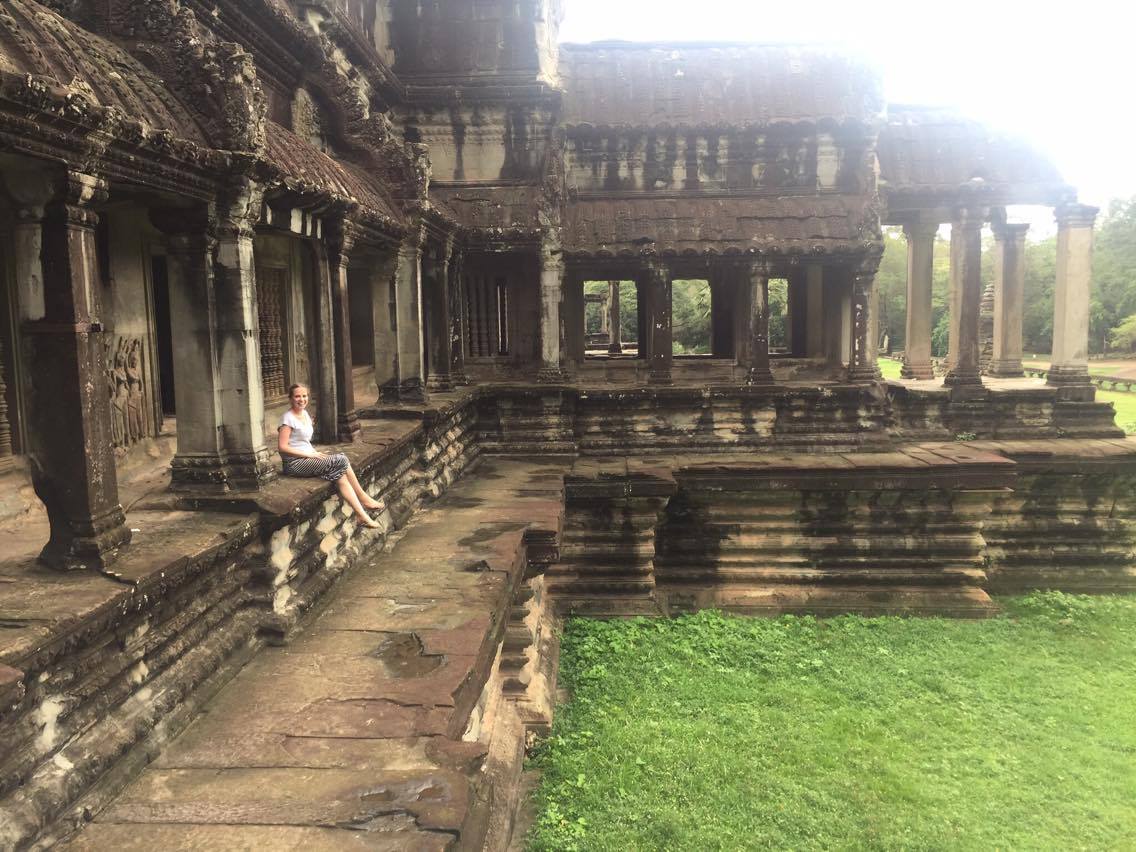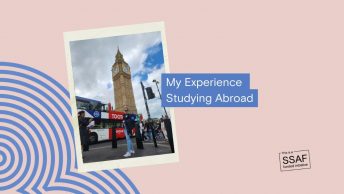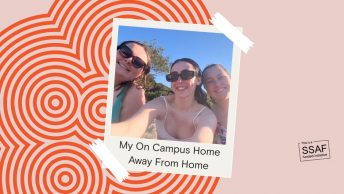This post is over three years old, the information may be outdated.
Fiona O’Connor, a final-year student in the Bachelor of Business Studies, studies her CSU degree through Northern Sydney Institute, at Crows Nest in northern Sydney.
Fiona was part of a group of undergraduate and postgraduate students who travelled to Cambodia in June 2016 to study international marketing and business, led by Warwick Baines.
Not only did they complete the requirements for their course, they learned so much more about themselves and the culturally rich world in which they live.
The main purpose of the tour was to learn about operating business in Cambodia, including the challenges, strengths and weaknesses for business owners and operators. This could not be separated from learning about the culture and challenging history of Cambodia, especially under the Khmer Rouge in the 1970s.
The sites of Khmer Rouge atrocities, including the S21 interrogation centre in Phnom Penh and the so-called Killing Fields outside the capital, were by far the most confronting and unforgettable aspects of the tour. It was incredibly emotional and moving.
So much of Cambodia’s recent history was the result of the impact of the Khmer Rouge, and it was an excellent foundation to understanding the country and how business works there.
Over two weeks we travelled around Cambodia, starting in the capital Phnom Penh, and then on to Siem Reap and Kratie, and even a three-night home-stay in a rural village. We interviewed local business people and visited cultural sites to develop further understanding of Cambodian business.
I found our interview with the part-owner of BLM, a company that has successfully started the Chatime Franchise in Cambodia, a fascinating insight to the challenges faced in business operations, as well as an introduction to CSR in Cambodia.
BLM has spent a lot of time training homeless and uneducated children who had been rescued from extreme poverty by the local non-government organisation, PSE.
This case study highlighted the extreme statistics regarding education in Cambodian rural villages, where only 20 per cent of students reach high school. Every business person we met recognised education was the only way forward for Cambodia.
But we also heard that education was not a priority in villages, as villagers had more immediate needs for roads, electricity and water. The poverty in rural Cambodia was incredibly confronting, especially the lack of access to clean water.
A great advantage of our trip was the mix of postgraduate and undergraduate students from a variety of majors, as we all had different perspectives and experiences to offer, and we got on really well. It was a great mix of ages and personalities.
Our tour guide Tola also made our tour special by teaching us about his beautiful country and his unforgettable sense of humour.
Most importantly, the whole trip provided me with a cultural immersion I had never experienced, which will help me be more culturally sensitive both here in Australia and overseas. It also made me appreciate what it is like to live and work in the developing nations which produce so much of the products we consume in the developed world.
Note: Fiona’s experience was organised through CSU Global and the Faculty of Business, Justice and Behavioural Sciences.










